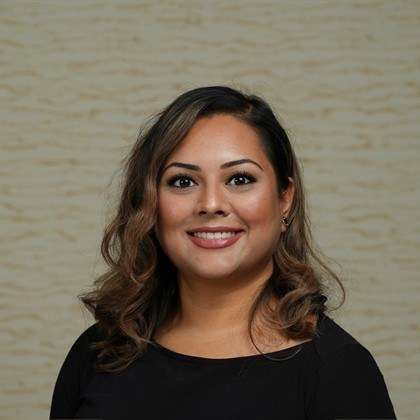Eid Mubarak
April 8, 2024 in Culture, Culture & Workforce Wellness
By Shahnaz Uddin and Zoe Nerantzis

As we reach the end of the Muslim holy month of Ramadan (March 11 – April 9, 2024), we wanted to explore the meaning and significance of this month, and share ways that employers and coworkers can support their Muslim colleagues in the workplace. FMP Consultant Shahnaz Uddin shared her personal perspective on experiencing Ramadan in the workplace and recommendations for providing support.
What is the importance and purpose of Ramadan to Muslims?
Ramadan is the ninth month of the Islamic calendar and follows a lunar cycle (29 or 30 days of fasting). The importance of the month is that it marks the time when the first verses of the holy Quran were revealed to Prophet Mohammad, peace be upon him. During this month, Muslims observe fasting from sunrise to sunset (no food or drinks…yes, even water) as a means to cultivate self-control, gratitude, God-consciousness, and compassion. It’s an intense month of spiritual rejuvenation (such as praying, giving back to charity, or helping the community), followed by a celebration called Eid al-Fitr, during which Muslims celebrate with friends, family, food, and gifts.
What does the month of Ramadan mean to you?
For me, Ramadan is a great way to focus on the intention in everything I do. From meeting the five daily prayers on time, to what I eat to break my fast, to what I watch or listen to throughout the day, I try to be as intentional as possible and conscious of how connected everything in life is. It’s also a time to actively reflect on the privileges I have, that many others in the world do not. I know I have a guaranteed meal at the beginning and end of each fast, and that reaffirms my appreciation and acknowledgement of my blessings.
What do you find challenging about observing Ramadan in the workplace?
Dehydration, caffeine withdrawal headaches, fatigue, and brain fog are all things I experienced in the first week of Ramadan as my body adjusted to the sudden change. Fasting Muslims wake up before the first prayer of the day (Fajr, or dawn) to eat, so the internal clock is very confused the first few days. I found myself most productive at 6:30 am, but by 11 am I was crashing. While challenging, these “symptoms” go away pretty quickly, so by the end of the first week I felt productive again. I’m also usually caffeine dependent, but now I have natural energy to do my work each day.
How do you feel most supported by your employer and colleagues during Ramadan?
Ramadan can feel isolating in the workplace, but it can also be a great opportunity to build a more inclusive and respectful company culture by sharing and talking about it. The best way an employer can support their Muslim staff is by encouraging them to share what they’re comfortable sharing about their journey, and helping spread awareness so staff who are Muslims are not overwhelmed with questions. For example, this can be in the form of a company-wide email with Ramadan ‘dos and don’ts,’ or by hosting an iftar (daily breaking of fast) event so individuals can be invited to share their customs with colleagues (Muslims are spread all throughout the world and come from various cultures).
What advice would you share with young professional Muslims experiencing their first Ramadan in the workplace?
Everyone’s experience is different in terms of sharing their faith, but for me, I find it helpful to talk to my team and clients a few days before Ramadan begins so I can explain what it is and how they can support me during the month. If needed, you can request an adjustment to schedules (starting work earlier, blocking your calendar during prayer times, not attending social events that overlap with breaking fast). If you go into the office, you can request to use a quiet and private room for prayer too. I would encourage young professionals to embrace their identity as a Muslim in the workplace and allow Ramadan to be a conversation starter for those curious to learn more!
Our blogs are sourced from employee contributions. Blog postings reflect our employees’ technical knowledge and methods, client experiences related to human capital and management consulting, and showcase the diverse perspectives of our workforce. The blog team welcomes input from all employees on workplace-related topics. Please contact us to see how you can contribute to a future posting.

Shahnaz Uddin joined FMP in October of 2023. She earned an MBA in International Business from American University and a Bachelor of Science in Public Health from the University of Maryland, and is SCRUM certified (CSM) and PROSCI ADKAR trained in Change Management. Ms. Uddin has 6 years of professional experience providing services in the areas of Organizational Change Management, Communications, Training, and Project Management. As a Senior Change Management Consultant at FMP, Ms. Uddin is responsible for guiding the design, integration, and optimization of human capital solutions while leading cross functional teams to ensure high quality user adoption.

Zoe Nerantzis joined FMP as a Consultant in May 2021 and works with the National Science Foundation team by supporting NSF’s learning and development branch. Zoe is from Rockville, Maryland and can generally be found reading fantasy novels, working out in her basement, or rooting for the Washington Commanders.